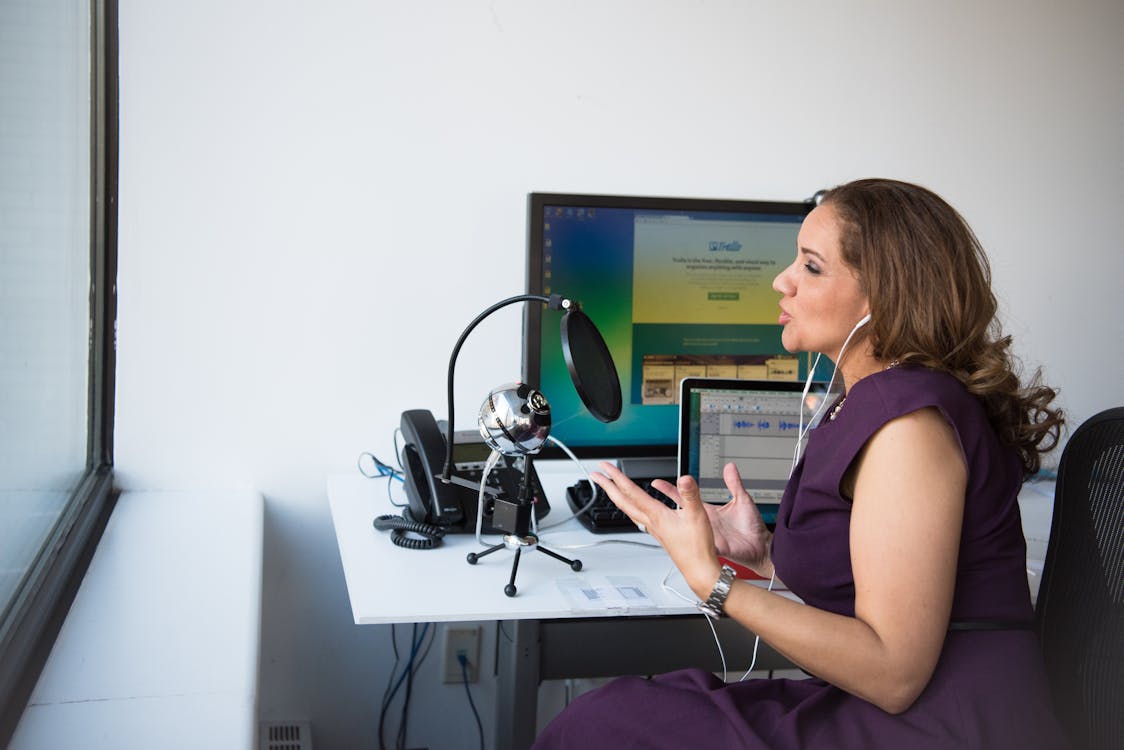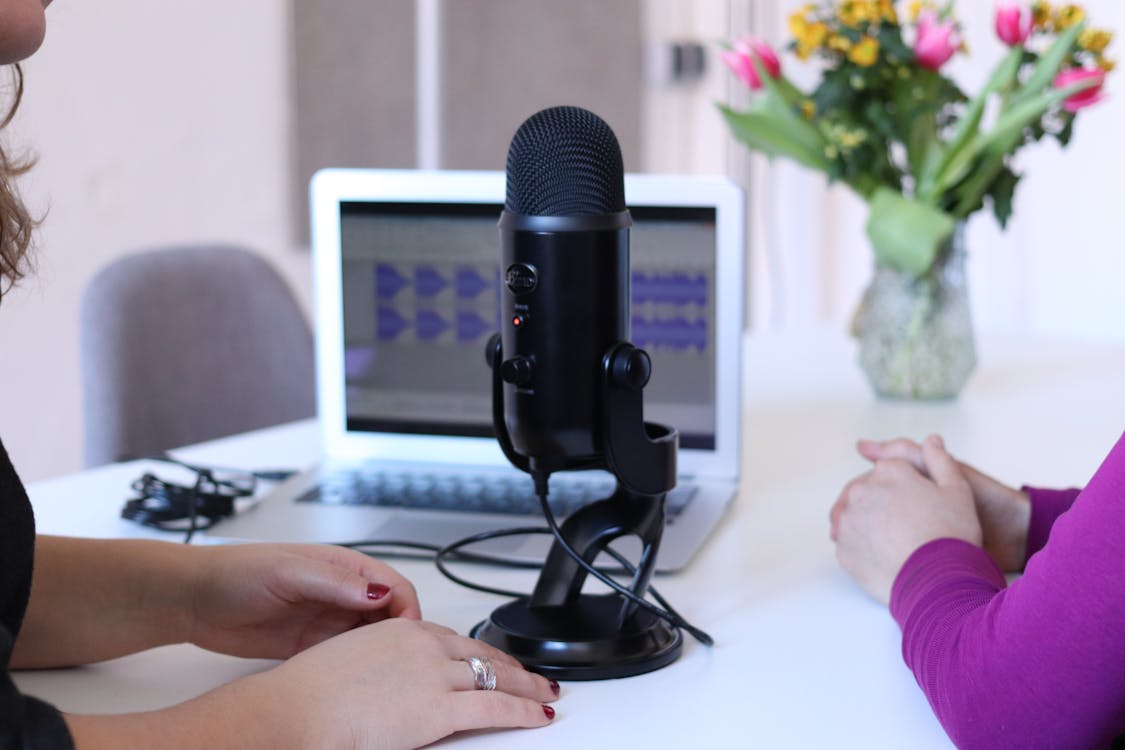Podcasting has exploded in popularity in recent years, with millions of episodes covering virtually every topic imaginable. As more creators jump into the space, standing out becomes increasingly difficult—but not impossible.
The secret lies in creating engaging, high-quality content, perfecting your production, and strategically working on your podcast’s SEO marketing. Whether you’re just starting or looking to refine an existing show, this guide will walk you through essential tips for creating a standout podcast that resonates with your listeners and boosts your brand.
1. Define Your Podcast’s Purpose
Before diving into the logistics of podcasting, it’s crucial to define your podcast’s purpose. What do you want to achieve? Who is your target audience? Understanding the answers to these questions will set the foundation for your podcast.
Know Your Niche
Your podcast should revolve around a specific topic or niche that resonates with your passion and expertise. Whether it’s true crime, business advice, or hobbies like gardening, focusing on a niche helps attract a dedicated listener base. General podcasts often fail to stand out because they don’t cater to a particular audience. Instead
Identify Your Audience
Who are you trying to reach? Knowing your audience helps shape your content and tone. Are you targeting young entrepreneurs, seasoned professionals, or hobbyists? When you understand who you’re speaking to, it becomes easier to create content that engages them.
Take time to research your potential listeners. What are their challenges? What do they want to learn or hear? By answering these questions, you can align your podcast’s content with their interests and create something truly valuable.
2. Develop a Unique Content Strategy
Now that you have a clear purpose and a defined audience, it’s time to think about content. Content is king, and if you want your podcast to stand out, you need to offer something fresh and unique.
Originality is Key
In a saturated market, originality is your best friend. Your unique perspective on a popular topic or your ability to cover unexplored subjects can make all the difference. Think about what differentiates you from other podcasters in your niche. Are you offering insights or stories that others can’t? How can you inject your personality into the content to make it stand out?
Plan Your Episodes
Creating a standout podcast also requires careful episode planning. Structure your episodes in a way that keeps your audience hooked from beginning to end. Start with a compelling introduction that outlines what the episode will cover. Use clear transitions between segments to maintain a smooth flow and wrap up with a strong conclusion that leaves listeners satisfied but wanting more.
Use Storytelling
Humans are hardwired to love stories. One way to make your podcast engaging is by weaving storytelling into your episodes. Even if your podcast is factual, such as a business or educational podcast, you can incorporate personal anecdotes, case studies, or interviews that tell a story. This makes your content relatable and helps build a connection with your audience.

3. Invest in Quality Equipment and Software
While content is the most important factor, poor production quality can turn listeners away, no matter how good your message is. Thankfully, podcasting equipment doesn’t have to break the bank.
Microphones
The most critical piece of equipment is your microphone. A good microphone can drastically improve the quality of your podcast. Entry-level options such as the Audio-Technica ATR2100x or the Blue Yeti are popular among podcasters and provide professional sound without a hefty price tag.
Recording Software
There are plenty of recording software options, many of which are free. Audacity is a popular choice for beginners because it’s easy to use and offers all the essential editing tools. For those willing to invest a little more, Adobe Audition provides advanced features that can help you polish your audio.
Pop Filter and Headphones
A pop filter reduces the “popping” sounds that come from pronouncing certain consonants, like “P” and “B.” Additionally, a good pair of headphones ensures you can monitor the audio quality during recording and pick up on any background noise or inconsistencies.
4. Master Your Podcast Production
Recording your podcast is just the first step. Editing and producing it with care is essential to making it stand out.
Editing Software
Your podcast needs to be well-edited to keep your audience engaged. Use software like Audacity (free) or GarageBand (for Mac users) to remove any awkward pauses, background noise, or stumbles during recording. For more professional podcasts, Adobe Audition offers advanced editing features to add layers of audio effects or smooth transitions between segments.
Sound Design
Incorporating music and sound effects is another way to enhance the production quality of your podcast. Choose a catchy intro jingle that resonates with your theme. Adding light background music or sound effects can keep listeners engaged and make your podcast feel more polished.
Consistency is Key
The best podcasts maintain consistency, both in terms of quality and frequency. If you plan to release an episode weekly, stick to that schedule. When listeners know they can expect new content from you on a particular day, they’re more likely to subscribe and keep tuning in.
5. Market Your Podcast Like a Pro
No matter how amazing your content is, if no one knows about your podcast, you won’t grow your audience. Effective marketing is just as important as creating great content.
Leverage SEO for Podcasts
Search engine optimization (SEO) isn’t just for websites. Your podcast’s show notes, episode titles, and descriptions can all be optimized to help people find your podcast via search engines. Use targeted keywords to attract listeners who may be searching for content in specific industries
Promote on Social Media
Social media is an essential tool for podcast marketing. Share your episodes on platforms like Twitter, Instagram, Facebook, and LinkedIn. Create short video clips or audio snippets that tease new episodes, offering a preview of what’s to come. You can also use social media to engage with your listeners by asking questions or encouraging them to share their thoughts on your latest episode.
Build an Email List
Email marketing is still one of the most effective ways to engage with your audience. Encourage listeners to subscribe to your newsletter for updates, behind-the-scenes content, or exclusive interviews. Your email list can also serve as a reminder to listen to new episodes, driving more traffic to your podcast.

6. Collaborate and Feature Guests
One of the fastest ways to grow your podcast is by featuring guests or collaborating with other podcasters.
Bring on Guests
Inviting guests with a large following or specialized knowledge can expand your reach. Whether it’s an industry expert, a thought leader, or a fellow podcaster, a guest can help introduce your podcast to a new audience. Be sure to promote guest episodes well in advance and encourage your guests to share the episode with their audience.
Appear on Other Podcasts
Similarly, you can boost your exposure by being a guest on other podcasts. It’s a great opportunity to share your knowledge and direct new listeners back to your show.
7. Track Your Metrics and Optimize
Once your podcast is up and running, it’s important to track your performance. Key metrics like downloads, listener retention, and reviews will tell you how well your podcast is performing.
Analyze Listener Feedback
Pay close attention to listener reviews and comments. What do they like? What suggestions do they have for improvement? Listening to feedback and making adjustments based on what your audience wants is a surefire way to keep them engaged.
Experiment with Formats
If you notice listener numbers dropping, don’t be afraid to experiment. Try out different formats, such as shorter or longer episodes, interviews, or Q&A sessions. Sometimes, a small adjustment can reignite audience interest.
8. Optimize Your Podcast for Mobile Listeners
In today’s fast-paced world, most podcast listeners tune in on the go using their mobile devices. Optimizing your podcast for mobile ensures that your content reaches your listeners wherever they are.
Keep File Sizes Manageable
While high-quality audio is essential, it’s important to balance quality with file size. If your podcast file is too large, it can consume significant data or take longer to download on mobile devices. Aim for a balance where your audio remains clear, but the file size is still manageable for mobile listeners.
Mobile-Friendly Show Notes and Descriptions
Your podcast show notes and descriptions should also be optimized for mobile. This means making the content easy to read on smaller screens. Use short paragraphs, bullet points, and concise language. Ensure any links you include work well on mobile browsers, enhancing the overall experience for your audience.

9. Develop Consistent Branding
Branding isn’t just for businesses; it’s crucial for podcasts too. A strong, consistent brand helps listeners recognize your show, builds trust, and makes your podcast memorable.
Create a Strong Podcast Name and Logo
Your podcast name should reflect your content and attract your target audience. Make it catchy, memorable, and relevant to your niche. Along with a name, design a professional-looking logo that will serve as the visual representation of your podcast.
Choose a Consistent Format
Consistency extends to the format of your podcast as well. Decide on a general structure that you’ll use in every episode, whether it’s a monologue, an interview, or a discussion panel. Consistency in format helps establish expectations and familiarity with your audience.
10. Create Compelling Titles
Your podcast’s title is one of the first things potential listeners will see, so it needs to be compelling enough to draw them in.
Be Specific and Descriptive
Titles that clearly describe what the episode is about are more likely to attract listeners. For example, instead of naming an episode “Episode 3,” name it something like “How to Increase Your Productivity in 5 Easy Steps.” Descriptive titles not only attract listeners but can also improve SEO for your podcast.

11. Engage with Your Audience
Creating a successful podcast isn’t just about talking into a microphone—it’s about building a relationship with your listeners. Engaging with your audience both during and outside of your episodes will keep them coming back for more.
Encourage Listener Feedback
At the end of each episode, encourage your audience to reach out with feedback, questions, or topic suggestions for future episodes. You can ask them to leave comments on your social media platforms, email you directly, or leave a review on podcast directories.
Build a Community Around Your Podcast
Consider creating a community space where your listeners can engage with each other, such as a Facebook group, Discord server, or a forum on your website. This creates a more personal connection between you and your audience, turning casual listeners into loyal followers.
12. Stay Patient and Persistent
Podcasting success doesn’t happen overnight. It can take time to build an audience and get your content noticed. Many podcasters give up too soon, expecting instant results. But, like any successful venture, podcasting requires persistence, consistency, and a bit of patience.
Set Realistic Goals
When you first start, set achievable short-term goals, such as hitting a certain number of downloads, increasing social media followers, or getting your first listener review. Celebrate these milestones along the way to stay motivated.
Keep Improving
Podcasting is a continuous learning process. Every episode offers an opportunity to improve your content, production, or marketing efforts. By staying persistent, patient, and open to improvement, your podcast will eventually find its footing and stand out in the crowded market.
For SEO Services and More, Let’s Help You!
If you need help to boost your podcast’s visibility and grow your audience through SEO and digital marketing, I, Makarand Utpat, can help with affordable SEO services for small businesses.
You can also count on me if you’re looking for an auto repair shop SEO, chiropractor search engine optimization, Google Business Optimization, HVAC SEO services, or SEO for carpet cleaners. I can tailor a strategy to help your small business succeed.
As an experienced podcaster, I know what works for podcasts that listeners keep coming back for. So, book a 30-minute consultation with me today and let’s find out ways to boost the reach of your podcast and help it stand out!


